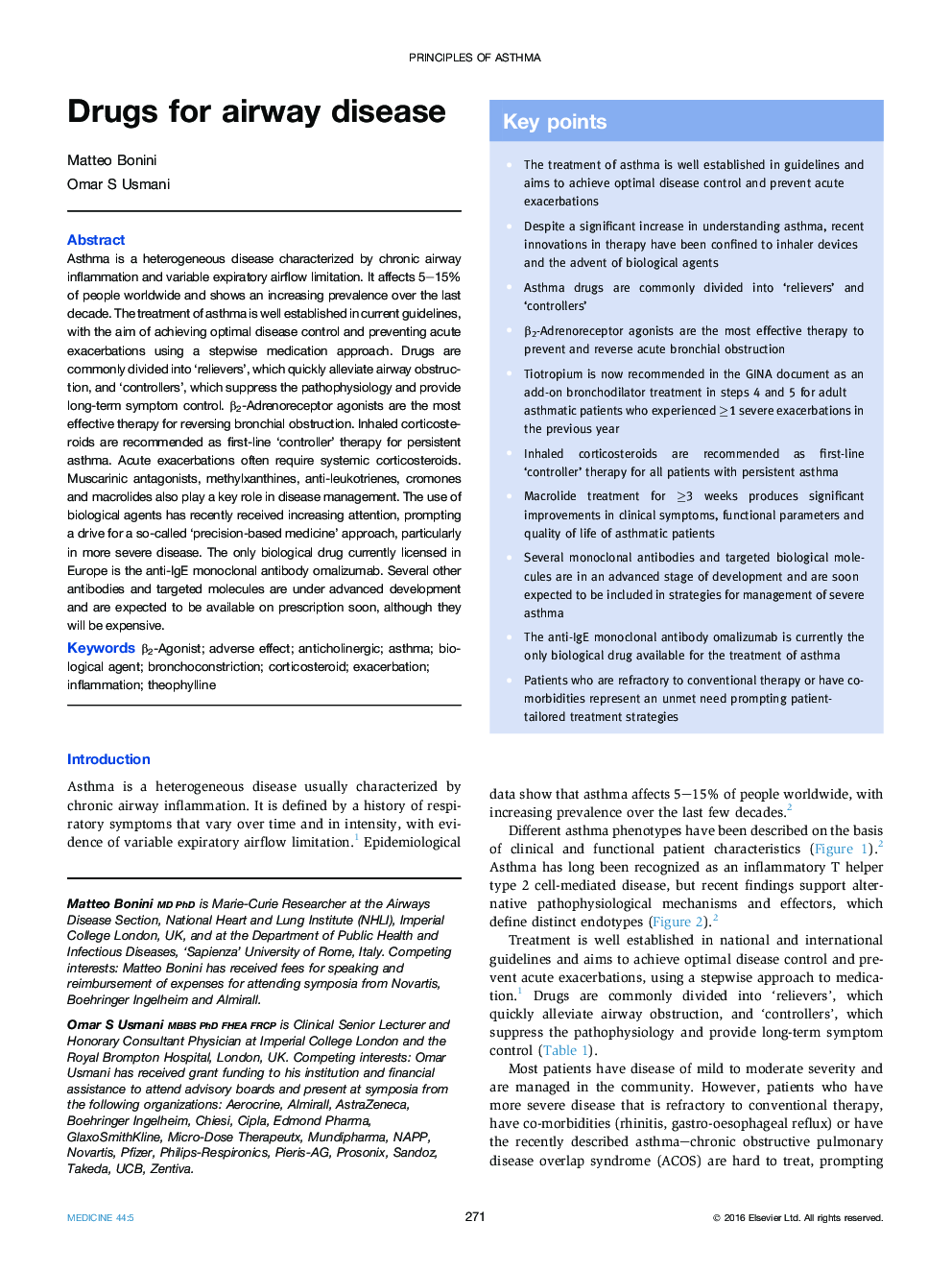| Article ID | Journal | Published Year | Pages | File Type |
|---|---|---|---|---|
| 3803611 | Medicine | 2016 | 10 Pages |
Asthma is a heterogeneous disease characterized by chronic airway inflammation and variable expiratory airflow limitation. It affects 5–15% of people worldwide and shows an increasing prevalence over the last decade. The treatment of asthma is well established in current guidelines, with the aim of achieving optimal disease control and preventing acute exacerbations using a stepwise medication approach. Drugs are commonly divided into ‘relievers’, which quickly alleviate airway obstruction, and ‘controllers’, which suppress the pathophysiology and provide long-term symptom control. β2-Adrenoreceptor agonists are the most effective therapy for reversing bronchial obstruction. Inhaled corticosteroids are recommended as first-line ‘controller’ therapy for persistent asthma. Acute exacerbations often require systemic corticosteroids. Muscarinic antagonists, methylxanthines, anti-leukotrienes, cromones and macrolides also play a key role in disease management. The use of biological agents has recently received increasing attention, prompting a drive for a so-called ‘precision-based medicine’ approach, particularly in more severe disease. The only biological drug currently licensed in Europe is the anti-IgE monoclonal antibody omalizumab. Several other antibodies and targeted molecules are under advanced development and are expected to be available on prescription soon, although they will be expensive.
